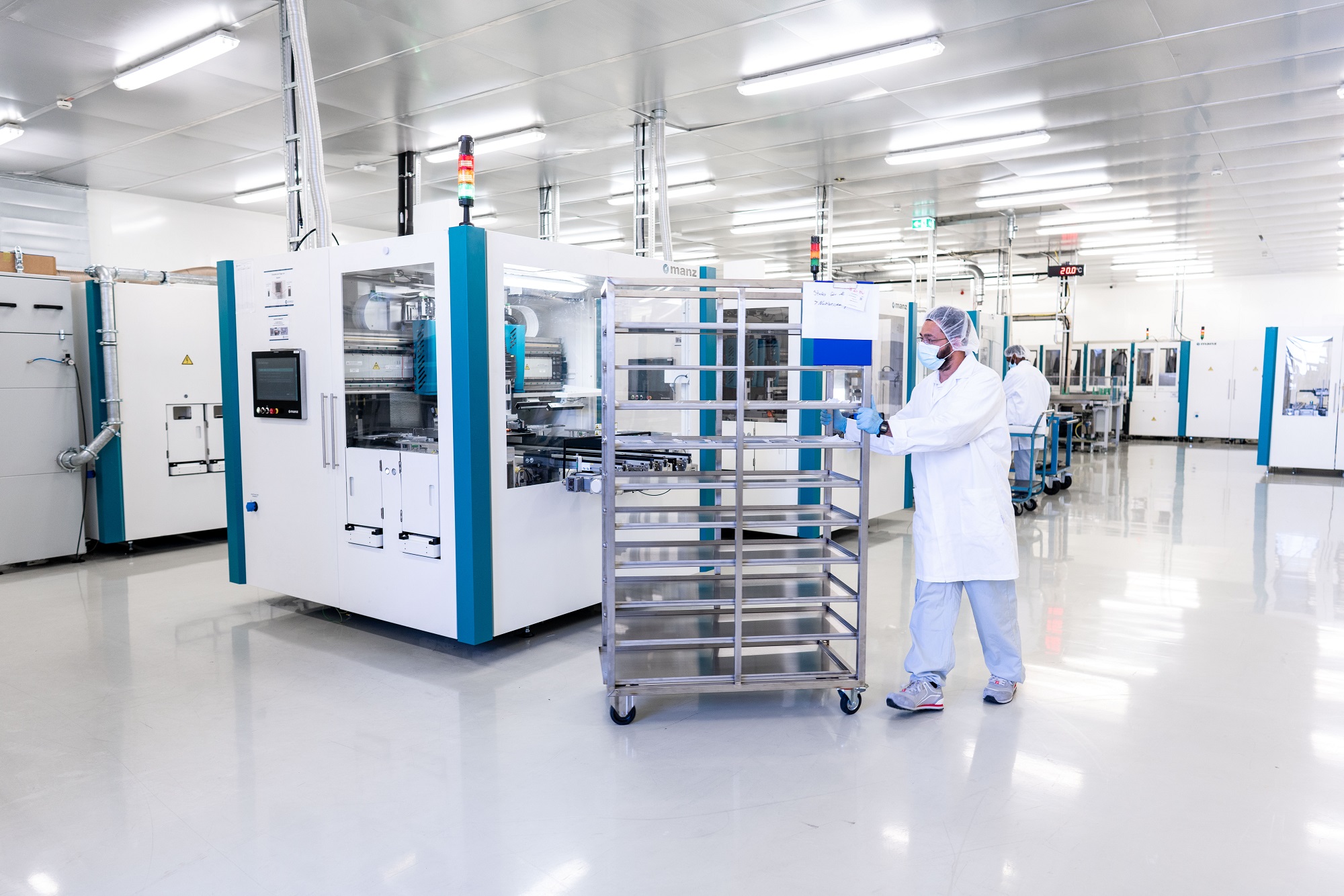 Customcells ist technischer Etwicklungspartner entlang der geamten Wertschöpfungskette der Lithium-Ionen-Batterie sowie Kleinserienhersteller kundenspezifischen Lithium-Ionen-Pouchzellen. Foto: Customcells.
Customcells ist technischer Etwicklungspartner entlang der geamten Wertschöpfungskette der Lithium-Ionen-Batterie sowie Kleinserienhersteller kundenspezifischen Lithium-Ionen-Pouchzellen. Foto: Customcells.
Whether on the road, at sea or in the air, the ecological turnaround in mobility is closely linked to the success of powerful batteries. Lithium-ion batteries are now in e-cars, underwater vehicles and could soon enable air cabs to take off. On the occasion of National Battery Day in February in the USA, Customcells, one of the leading developers and manufacturers of application-specific battery cells, called for Germany as an industrial location to take a much closer look at the technology and its opportunities for sustainable mobility in the future.
For several years now, National Battery Day has been proclaimed in the USA on February 18. The day of honor commemorates the birthday of Alessandro Volta (February 18, 1754) – the inventor of the electric battery. A highly technologically complex application that seems more relevant than ever in the face of the holistic mobility transformation: over the past decade, lithium-ion batteries have become a backbone of the ecological transformation.
Demand for high-performance battery cells is growing
And this demand is likely to increase significantly again in the coming years: In a recent forecast, the consulting firm McKinsey expects demand to rise from around 700 gigawatt hours in 2022 to 4700 gigawatt hours in 2030. “Perhaps we will also need a National Battery Day in Germany in the future, as in the USA. But what we need to establish in any case is a much greater awareness of the importance and even more so the potential of battery technology. This ranges from combating climate change to the necessary realignment of our economic model. The lithium-ion battery is the key technology of the 21st century,” says Dr. Dirk Abendroth, CEO of Customcells Holding.
Customcells sees great potential in the aviation sector, among others. The electrification of air traffic could contribute significantly to climate and environmental protection. In Germany, for example, flights by private jets recently accounted for around 12 percent of air traffic, emitting more than one million tons of CO2. Almost half of all domestic passenger flights recently had a distance of just 400 to 500 kilometers. “We are co-piloting a story of the century,” says Abendroth, who wants to drive the holistic electrification of air transport with his team.
Lithium-ion battery technology is a gamechanger
In the future, customcells technology will not only prove itself in the air, but already today in everyday life. E-mobility on the road is just one of the most obvious examples. In fact, application-specific lithium-ion battery cells also enable the construction and development of unmanned underwater vehicles (UUVs) to explore the oceans in a climate-neutral way. Specially manufactured battery cells are providing leaps in innovation in medicine, for example, by eliminating cable connections in medical instruments or making technologies such as pacemakers reliable. Combining digital technologies such as artificial intelligence (AI) and machine learning with battery cells opens up additional possibilities. Data reconciliation between battery solutions in use and production can help to continuously optimize the multitude of parameters that need to be taken into account in manufacturing.
“For Germany’s industry, lithium-ion technology offers tremendous opportunities. New application scenarios are emerging almost daily,” says Torge Thönnessen, co-founder and managing director of Customcells. But to take full advantage of the opportunities, Germany also needs to step up the training of skilled workers in this field, says Thönnessen, who founded the company together with Leopold König more than ten years ago. Greater awareness of the importance of the battery is therefore called for, especially in the education and training sector. Customcells itself sees itself as “powered by people”. In addition to cooperating with universities, the company relies on a comprehensive internal training program and participates in national and international forums to address future employees in order to holistically counter the impending shortage of skilled workers. www.customcells.de
Read this and other articles on the topic of Mobility 4.0 electric-networked-autonomous in the current eMove360° magazine – free download PDF or order print version at sabine.metzger@emove360.com